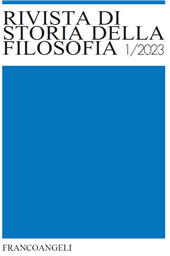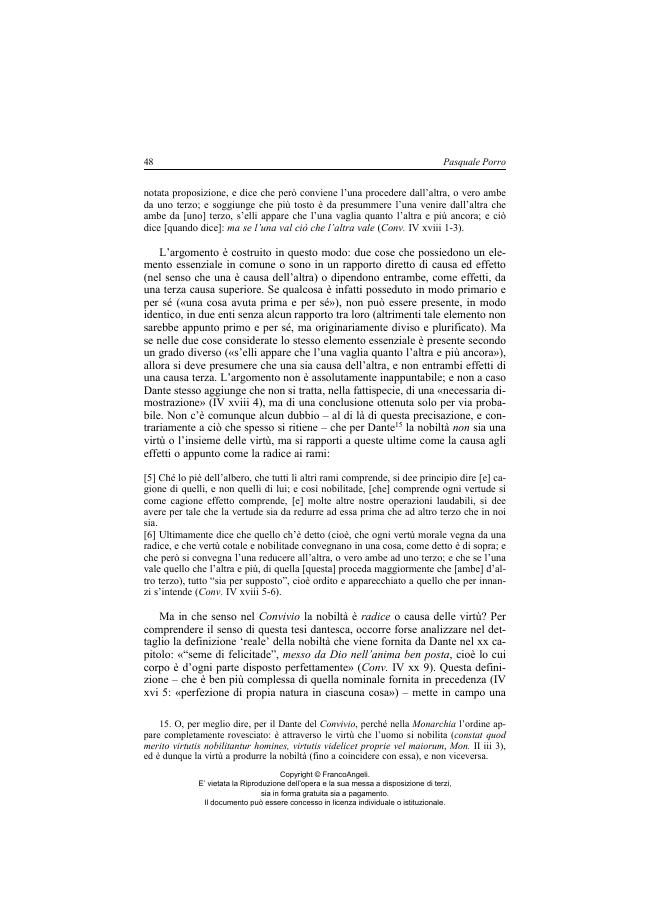Santi, eroi, sapienti e nobili : Dante e l'esemplarismo morale
40-55 p.
In the Epistle to Cangrande Dante claims that the allegorical subject of his Commedia is "the human being insofar as, deserving and demeriting through her/his free will, is subjected to the justice of reward or punishment" (Epist XIII, ix, 25). He also points out that the poem's modus tractandi, in itself manifold, also includes the position of examples (Epist XIII, ix, 27). The Comedy is thus presented as a work of ethics or moral philosophy that proceeds through the representation of persons or actions to be held as models and to be imitated.
The foundations of this exemplaristic attitude are traced back to the theory of nobility that Dante himself develops in the fourth treatise of the Banquet Through an original approach that brings together physiology, embryology and physiognomy, Dante reinterprets nobility as a kind of natural root of all virtues, and as what ultimately characterises those who acquire the status of moral exemplars. The article finally addresses precisely on the basis of Dante's treatment of nobility the issue of the historical determination of moral exemplars. [Publisher's text].
Forma parte de
Rivista di storia della filosofia : LXXVIII, 1, 2023-
Artículos del mismo número (disponibles individualmente)
-
Información
Código DOI: 10.3280/SF2023-001004
ISSN: 1972-5558
MATERIAS
KEYWORDS
- Dante Alighieri, Moral Exemplarism, Nobility, Virtue Theory, Medieval Philosophy, Happiness



